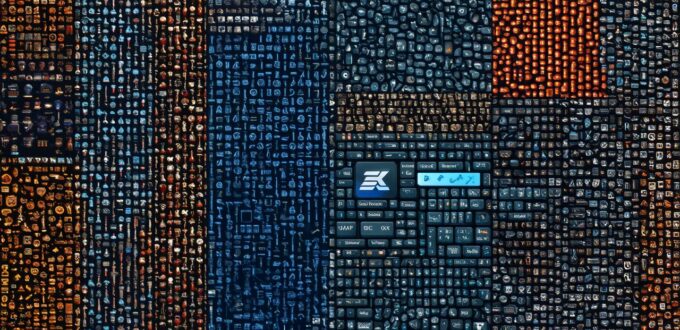An app is a software application designed for mobile devices such as smartphones and tablets. It can be downloaded from app stores and runs on the device’s operating system (OS). In this article, we will explore whether an app can be considered software and how it differs from other forms of software.
What is Software?
Software refers to a set of instructions or programs that are used by computers to perform specific tasks. It can range from simple applications such as word processors and photo editors to complex systems such as operating systems and web browsers. Software can be categorized into two main types: system software and application software.
Is an App Considered Software?
The answer to this question depends on how you define software. According to the traditional definition of software, which is based on the Turing Machine model, software is a set of instructions that can be executed by a computer to perform specific tasks. In this sense, an app can be considered software since it is a set of instructions that can be executed on a mobile device to perform specific tasks such as browsing the web, taking photos, or playing games.
The Differences Between Apps and Other Forms of Software
Despite their similarities, apps and other forms of software have several key differences that set them apart. Here are some of the main differences between apps and other forms of software:
- Platform: Apps are designed to run on specific platforms such as iOS or Android, while other forms of software can run on multiple platforms with varying degrees of compatibility.
- Distribution: Apps are typically distributed through app stores, while other forms of software can be downloaded from websites or installed directly onto a computer.
- User Interface: Apps have a highly interactive and visual user interface that is designed to be intuitive and easy to use, while other forms of software often have more complex interfaces that require more advanced technical skills to navigate.
- Functionality: Apps are typically designed to perform specific tasks or functions, while other forms of software can offer a wider range of functionality and customization options.
- Security: Apps are subject to strict security protocols and regulations to protect user data and prevent malware attacks, while other forms of software may be more vulnerable to these threats.

Real-Life Examples of Apps and Their Impact
Apps have had a significant impact on our daily lives, changing the way we interact with technology and each other. Here are some real-life examples of apps and their impact:
- Social Media Apps: Social media apps such as Facebook, Twitter, and Instagram have revolutionized the way we communicate and share information, allowing us to connect with people from all over the world and stay up-to-date on the latest news and trends.
- Navigation Apps: Navigation apps such as Google Maps and Waze have made it easier for people to get around, providing real-time traffic updates and turn-by-turn directions to their destinations.
- Productivity Apps: Productivity apps such as Evernote and Trello have helped people stay organized and focused, allowing them to easily manage tasks, set reminders, and collaborate with others.
- Health and Fitness Apps: Health and fitness apps such as MyFitnessPal and Fitbit have helped people track their diet and exercise habits, providing personalized recommendations and motivation to achieve their health goals.
- Gaming Apps: Gaming apps such as Angry Birds and Candy Crush have become cultural phenomena, providing a fun and engaging way for people of all ages to pass the time and compete with friends and family.
FAQs About Apps and Software
Here are some frequently asked questions about apps and software:
1. What is the difference between an app and a program?
An app is a software application designed for mobile devices, while a program is a set of instructions or routines that perform specific tasks on a computer.
2. Can an app be considered a system software?
No, an app cannot be considered system software since it is not responsible for managing the computer’s hardware and resources.
3. Is there a difference between free and paid apps?
Yes, there is a difference between free and paid apps. Free apps can be downloaded and used without any cost, while paid apps require payment before they can be downloaded and used.
4. Can an app be installed on multiple devices?
Yes, an app can be installed on multiple devices with varying degrees of compatibility. However, some apps may require a separate installation for each device.
5. Is there a limit to the number of apps that can be installed on a mobile device?
No, there is no limit to the number of apps that can be installed on a mobile device, as long as there is sufficient storage space and processing power.
Conclusion
In conclusion, whether an app can be considered software depends on how you define software. While apps are a type of software that perform specific tasks on mobile devices, they differ from other forms of software in terms of their platform, distribution, user interface, functionality, and security. Apps have had a significant impact on our daily lives, changing the way we interact with technology and each other. As technology continues to evolve, it is likely that apps will continue to play an important role in shaping our future.
